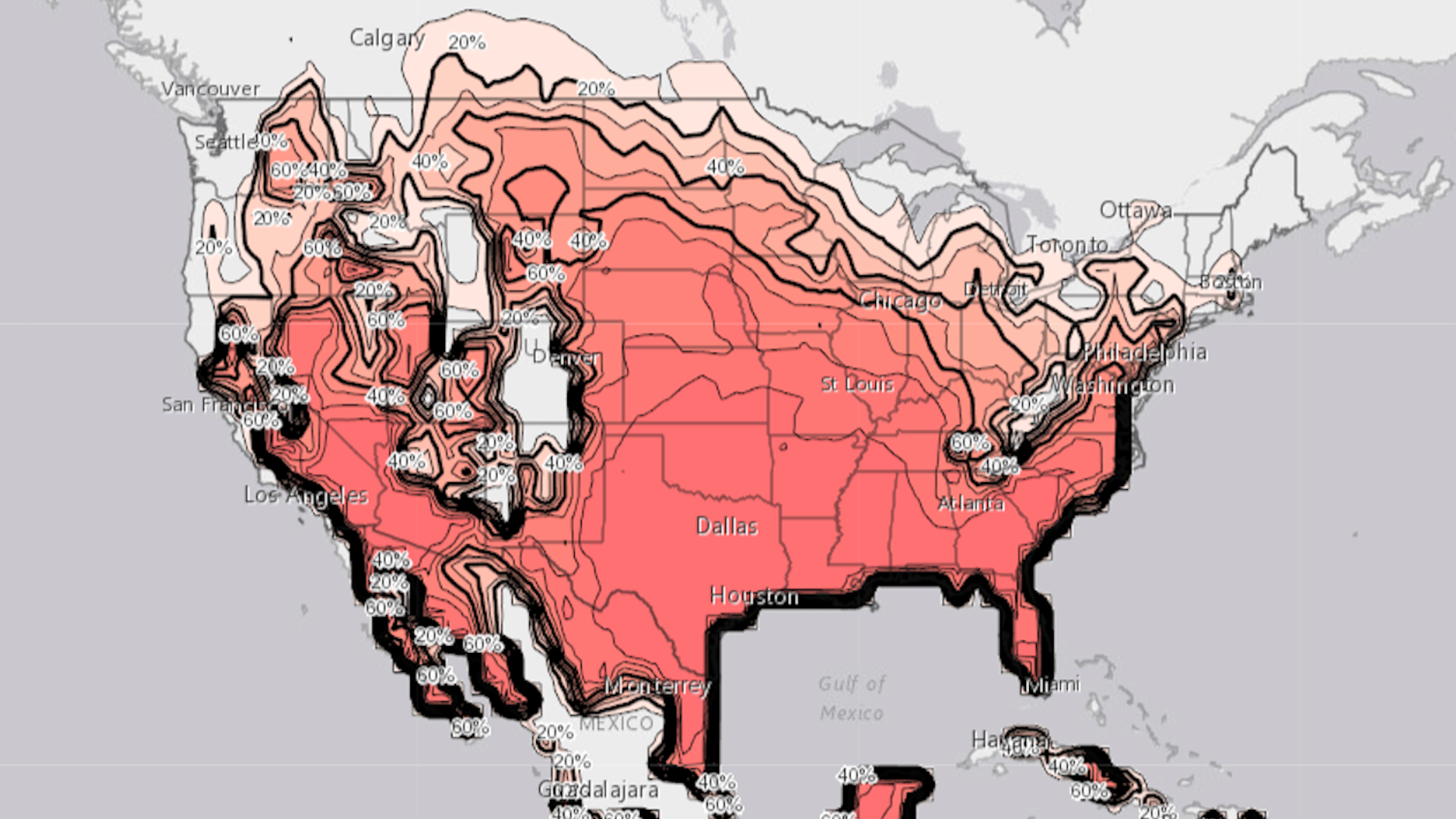| | | | | | | | | | | Axios What's Next | | By Jennifer A. Kingson, Joann Muller and Alex Fitzpatrick · Jul 28, 2022 | | Should middle and high schoolers get more sleep? California thinks so — and other states may agree, Jennifer reports in her story today. Today's Smart Brevity count: 1,063 words ... 4 minutes. | | | | | | 1 big thing: No more early school starts |  | | | Illustration: Annelise Capossela/Axios | | | | A landmark California law requiring high schools to start at 8:30am or later is jump-starting similar efforts nationwide after years of intense debate, Jennifer A. Kingson reports. Why it matters: Most teens don't get enough sleep — yet school start times are a hot-button political issue dividing communities, pitting teachers, parents, bus drivers, and administrators against one another. - Pediatricians say teens need 8.5 to 9.5 hours of sleep a night, and that starting school before 8:30am is a public health issue.
- Opponents say school schedules should be decided locally, and that a web of considerations, from transportation to after-school sports schedules, favor earlier starts.
Driving the news: California's law — which also sets 8am as the earliest that middle schools can start, and has an exception for rural districts — will affect three million students, who previously had an average start time of 8:07. - It has also helped spawn similar legislation in New York and New Jersey.
- Massachusetts, Texas, and the U.S. Virgin Islands also have related bills in the works, according to Start School Later, a nonprofit that monitors the movement.
California's law is "game-changing and empowering," and getting it signed was "no mean feat," said Terra Ziporyn Snider, co-founder and executive director of Start School Later. - Before Governor Gavin Newsom signed it in 2019, it was vetoed in 2018 by Governor Jerry Brown, who cited the issue of local control and opposition from the California Teachers Association.
- At least 22 states have attempted to set new start time rules, often to see their efforts quashed by concerns about cost, bus routes, extracurricular activities, child care for working parents, and teachers' hours.
- "A lot of superintendents have said to me in private, 'I wish that I could just mandate something like California,'" Snider tells Axios. "They want to do this, but their jobs are on the line."
Advocates for later school start times point to a growing body of scientific research showing the benefits of delaying school until 8:30 or later: Better academic performance, higher graduation rates, happier and healthier students, lower substance abuse rates, less tardiness/absenteeism, and less drowsy driving. The other side: California's law is "a disaster in the making," Bakersfield High School teacher Jeremy Adams wrote in CalMatters. - "Parents who drop their children off for school will no longer be able to do so, since they will presumably have to be at work much earlier than their child's new start time," Adams argues.
- When school ends at 4:30, "not only is it almost dark in the winter months, but consider the plight of students who want to play sports, or act in the school play, or get involved in any number of activities," he adds.
The bottom line: The pandemic prompted lots of schools to start later in the morning, since commuting was eliminated — and that may smooth the way for more legislation like California's. Share this story. |     | | | | | | 2. Families are fleeing big cities |  | | | Illustration: Sarah Grillo/Axios | | | | Families with young children left major U.S. cities in droves during the pandemic, per a new study, Alex Fitzpatrick reports. Why it matters: It's another indicator that high costs, remote work, and other factors are having a big impact on where people choose to live. Details: Counties with big cities saw their under-five population fall by 358,000, or 5.4%, between 2019 and mid-2021, per the study. - As the researchers note, falling birth rates and immigration levels mean there are fewer kids around in general. Yet between 2020-21, "large urban areas saw the under-five population fall by 3.7%, compared to 2.4% for the country as a whole."
- The study comes by way of the Economic Innovation Group — a bipartisan research organization — and is based in part on Census Bureau data.
Alex's thought bubble: It's always interesting to see big-picture data that lines up exactly with my lived experience — my wife and I wound up in Albany in large part because we both work remotely and could afford a house here with more space for our two-year-old son. |     | | | | | | 3. Dude, where's my car data? |  | | | Illustration: Gabriella Turrisi/Axios | | | | Dozens of companies are hoovering up data from Americans' cars, often unbeknownst to those behind the wheel, tech site The Markup reports. Why it matters: As cars become rolling computers, they're collecting all sorts of sensitive information about us — including most obviously data about where we go every day. Details: Companies involved in the budding automotive data industry include carmakers, navigation/infotainment firms, and insurance providers, among other groups. - Some of those name-checked by The Markup: Sirius XM, Allstate, and TomTom.
Yes, but: Many companies involved say they either anonymize or aggregate the data they collect, and some offer ways to opt out. The big picture: There's no evidence any of these companies are doing anything outright nefarious with drivers' info, but the emerging field demonstrates how easy it's becoming to turn almost everything we do into a monetizable data point. |     | | | | | | A message from Axios | | Get the news your competitors are reading | | |  | | | | Join the hundreds of companies already using Axios Pro to empower their work. How it works: Axios Pro saves your team time, delivering exclusive deals reporting and analysis you won't find anywhere else. Learn more about corporate special pricing. | | | | | | 4. Biden's new heat site |  | | | Screenshot of heat.gov showing the predicted likelihood of temperatures of 90°F or above on Aug. 9, 2022. | | | | The Biden administration has unveiled a new online portal for heat-related weather forecasting as well as health and safety information, Axios' Andrew Freedman reports. Why it matters: The website heat.gov brings existing products from NOAA together for the first time with new and existing risk guidance from throughout the federal government. Zoom in: Using the website, everyday people and policymakers can better anticipate extreme heat well in advance. - The portal also features new tools that identify areas at particular risk of extreme heat events due to their social vulnerability.
|     | | | | | | 5. A parent's guide to gaming |  | | | Illustration: Aïda Amer/Axios | | | | There's no instruction manual for working video games into family life. But parents of game-happy kids often don't have a choice, Axios' Stephen Totilo writes. Why it matters: Games can be fun hangout spaces, digital canvases for creativity, and safe spaces for learning how to win, lose, or chip away at a goal. What you can do: The most important thing a grown-up can do when bringing games into a kid's life? Find ways to share the experience. - That doesn't necessarily mean mastering Call of Duty.
- It does mean introducing gaming to a child as something they do with an older sibling or guardian. That will help instill healthy habits about what they play, how long they play, and what they get out of it.
Many video games include options to play together — or lend themselves to taking turns. Share this story. |     | | | | | | A message from Axios | | Get the news your competitors are reading | | |  | | | | Join the hundreds of companies already using Axios Pro to empower their work. How it works: Axios Pro saves your team time, delivering exclusive deals reporting and analysis you won't find anywhere else. Learn more about corporate special pricing. | | | | A hearty thanks to What's Next copy editor Patricia Guadalupe. Was this email forwarded to you? Get your daily dose of What's Next magic by signing up here for our free newsletter. |  | | Are you a fan of this email format? It's called Smart Brevity®. Over 300 orgs use it — in a tool called Axios HQ — to drive productivity with clearer workplace communications. | | | | | | Axios thanks our partners for supporting our newsletters. If you're interested in advertising, learn more here.
Sponsorship has no influence on editorial content. Axios, 3100 Clarendon Blvd, Arlington VA 22201 | | | You received this email because you signed up for newsletters from Axios.
Change your preferences or unsubscribe here. | | | Was this email forwarded to you?
Sign up now to get Axios in your inbox. | | | | Follow Axios on social media:    | | | | | |









No comments:
Post a Comment